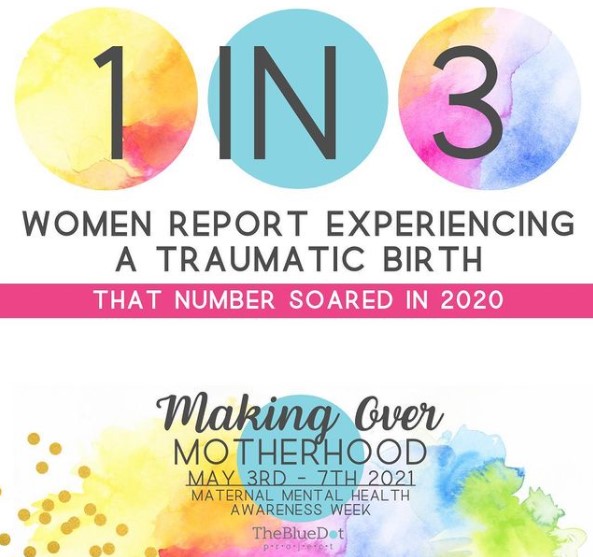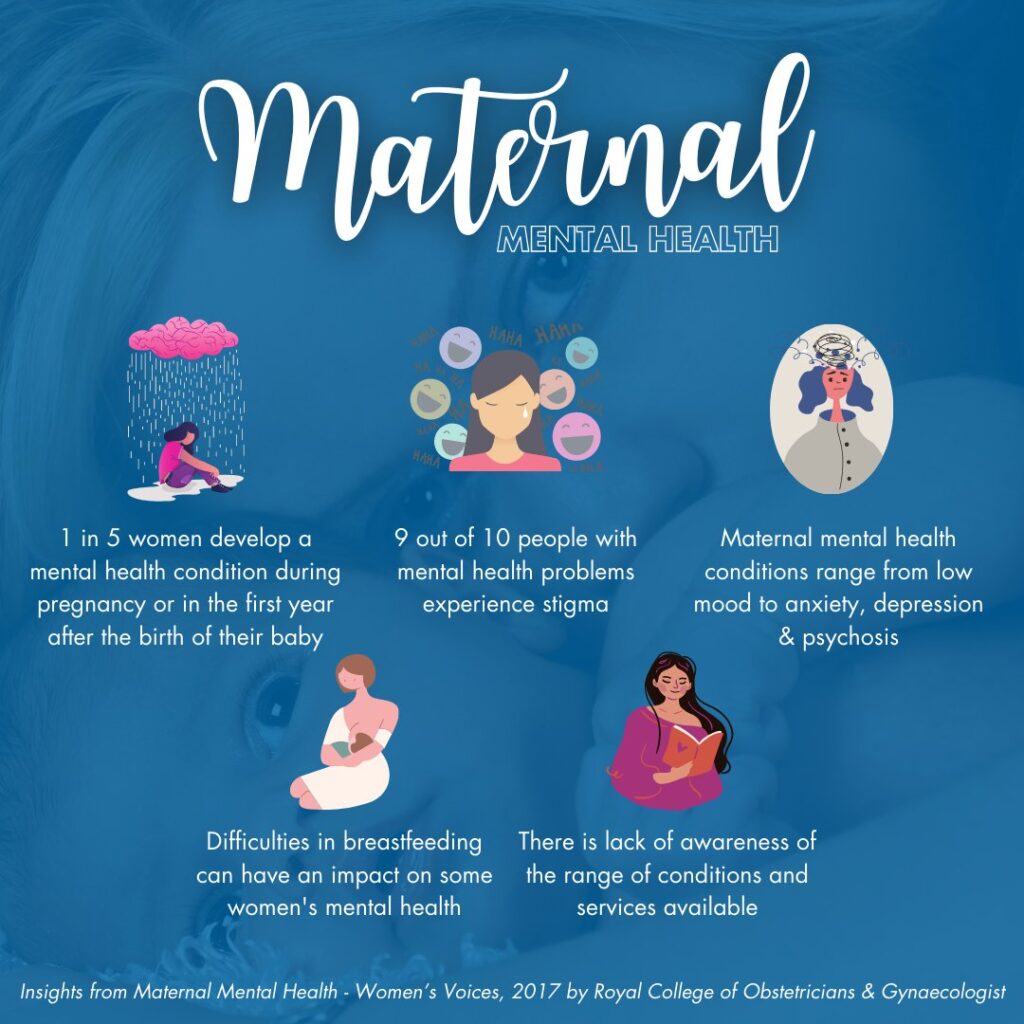Stress and depression among pregnant women and new mothers have increased during COVID-19, says a research study.
Sonepat: Focusing on spreading awareness about maternal mental health (MMH) this month has brought attention to the increasing rates of maternal depression.
Since the beginning of May, MMH projects and campaigns have started to extensively cover the issue online. For example, TheBlueDotProject, an awareness campaign around MMH disorders, began its work by educating on the impact of MMH disorders on women. During its five-day campaign on Instagram, that started on May 03, 2021, the project said, “Significant numbers of women reported having a traumatic birth experience in 2020 as compared to pre-pandemic rates where as many as ⅓ experienced a traumatic birth. Women with traumatic birth experiences are at higher risk for anxiety and depression.”

Following that, numerous women participated and shared their stories. Amanda Shuman who interacted with the project said, “I gave birth three weeks ago and had a postpartum hemorrhage. It was honestly the most traumatizing thing I have ever been through. Then, my son was put in a cardiac ICU. After all that, I don’t think I will ever be the same emotionally with having another baby.”
Another woman shared her experience,“On April 7th, I had my daughter and a severe postpartum hemorrhage. I ended up intubated, and in the operating room, with no pain management. At the worst, I truly feared leaving my husband and our two little girls. It was incredibly traumatic, I’m still grappling with it all,” she said.
Parul, who lives in Delhi, already suffers from a congenital disorder, Pulmonary Ductus Arteriosus (PDA), which worsened during her pregnancy. She started facing several complications, but could not get operated because of lockdown restrictions and fear of coronavirus last year. “It’s been a year since the complications worsened. Although I’ve been consulting doctors online and following the prescribed course of treatment, it has been an extremely stressful time,” she said.
“I think, sadly, it’ll get worse, I’m 10 days away from the due date and all I can think about is doing it alone as partners aren’t allowed in until active labour (due to medical reasons I can’t stay at home in the early stages). It’s so scary,” responded a woman to @/ourlittlebudsbox,’s instagram post, “Conversations around maternal mental health are always important but the pandemic has made them essential.”

It is estimated that 10–35 percent of women around the world including India suffer from depression during pregnancy and postpartum. A Candian study has found that the levels of depression and anxiety in mothers almost doubled in 2020. It revealed that 35 percent of the mothers surveyed reported symptoms of depression in 2020, compared to just 19 percent in the pre-pandemic period.
The awareness on the issue has continued as tweets with hashtags #MaternalMentalHealthMonth and #MaternalMHmatters engage with communities worldwide.
Feeling Good, a UK based evidence platform to help people cope with stress,worry,depression and improve sleep, wrote on their twitter, “Maternal mental health can range from low mood to psychosis; it’s essential we open up conversations about the different ways people can be affected. Let’s talk about maternal mental health, break the stigma, and get people the help and support they need #MaternalMentalHealthMonth”
Nigeria Health Watch said, “Maternal mental health issues are often unnoticed and left untreated.” It further informed on the connection between gendered violence and perinatal depression, with alternatives to what can be done.
Maternal mental health issues are often unnoticed and left untreated.@FeyfeyYusuf focuses on need to increase awareness and invest in providing the necessary support to women experiencing perinatal or Postpartum depression.
Read more: https://t.co/sMKF3fXb0e#maternalMHmatters pic.twitter.com/d6KXp4pxp9— Nigeria Health Watch (@nighealthwatch) May 5, 2021
Yesterday, Dr Andy Mayers, Principal Academic at Bournemouth, where he teaches clinical psychology, gave his expertise on the importance of maternal mental health with The Nourish App (dedicated to the well-being of mothers) — on the occasion of the ongoing maternal mental health month.
In India
The journey of Maternal mental health awareness isn’t new, but is becoming more and more important each day. Anvita Nair, a mental health activist, launched the campaign #BeatTheBlues last year in collaboration with The Green Oak Initiative to survey the status and treatment of maternal mental health in India. In an interview with Nair and the experts from Green Oak, Dr. Ashlesha Bagadia stated, “Mental health support needs to be in community spaces.”
Maternal mental health is a public health problem in India, says this 2020 research paper. It adds, “India’s public health facilities are burdened with patients being treated for COVID-19. Combined with the complete lockdown imposed throughout the country, pregnant women are finding it increasingly difficult to seek care and treatment from health facilities and providers. Lack of access to maternal health care and the absence of face-to-face interactions with healthcare providers has added to the stress and depression that pregnant women are often prone to.”
The mental health issues and problems faced by women in rural India are very serious. The paper says, “It is not possible for local health workers to reach every woman. Adding to the challenge is the involvement of the limited rural healthcare providers in COVID-19–related work.”
The United Nations Population Fund estimated that unwanted pregnancies have increased sharply during the lockdown. In India alone, it is estimated that 2.3 million unwanted pregnancies will occur, which will also increase the likelihood of unsafe abortions.
S. Jungari, the author of the research paper, writes, “The migrant women in the receiving states should be provided with basic antenatal and postnatal services. It is the government’s responsibility to ensure their well-being and make the necessary effort to minimize the uncertainty which is the major cause of depression.”




